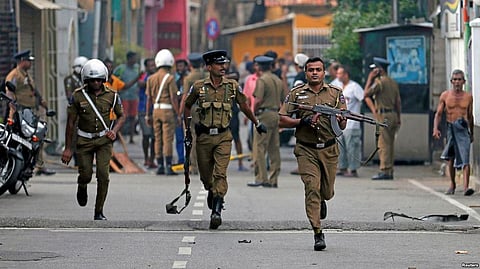Experts warn that many Sri Lankans who left to fight in Syria will likely return home and join groups like NTJ.
It is unclear how many Sri Lankans have joined the Syrian war over the years, but officials in 2016 said at least 32 citizens were known to have joined IS.
In 2015, IS news agency Amaq released a video — confirmed by Sri Lankan local news — that claimed a Sri Lankan NTJ member called Abu Shuraih Sailani was killed during an airstrike in Syria.
Al-Qaida or Islamic State?
Bruce Hoffman, senior counterterrorism expert at the Council on Foreign Relations, told VOA the Easter attacks resemble IS actions more than attacks conducted by al-Qaida.
"I think there is less reason to say that it's al-Qaida than ISIS," Hoffman said, using an acronym for the militant group. "Al-Qaida, to my knowledge, has not attacked churches — at least not recently — whereas ISIS has engaged in attacks against Christians in Egypt, Syria, Iraq, Nigeria and many other places."
Hoffman said NTJ and other Islamists are likely able to recruit members by exploiting the anger of the Muslim minority, which has found itself isolated by the mostly Buddhist Sinhalese majority.
ALSO READ: Sri Lanka Shuts Down Most Popular Social Media Sites after Terror Attack
"They have generally been the subject of complete exclusion, and their grievances have never really been addressed for at least two decades," Hoffman said. "The seeds of discontent, disenfranchisement and alienation run very deep, and may have made certain extremist members of the Muslim community suitable to malign outside influences."
Sri Lanka has a population of about 21 million, with Tamil-speaking Muslims making up about 9.7%. From 1983 to 2009, the country's Tamil and Sinhalese communities were engaged in civil war. (VOA)


